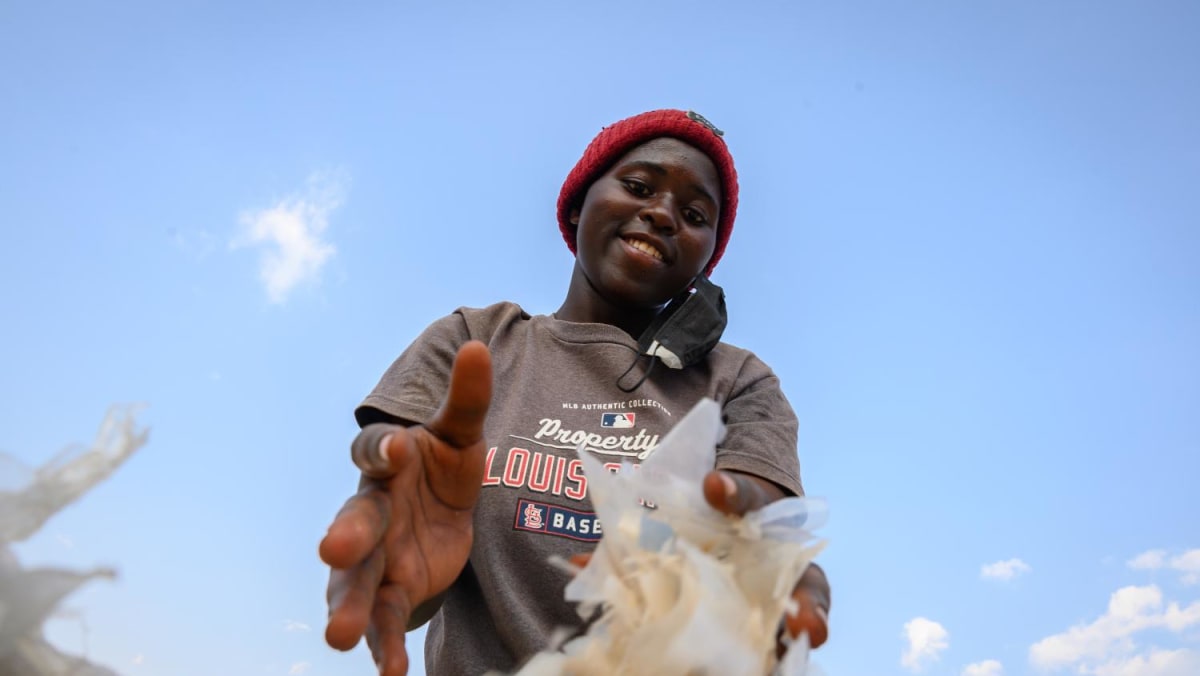
With NTU’s Go-Far programme, journalism students from the Wee Kim Wee School of Communication and Information get to go abroad every year to report on issues overseas. This year, 13 of them visited Rwanda to learn more about the East African nation Prime Minister Lee Hsien Loong described as one of the brightest spots in Africa. The stories show Rwanda’s handle on plastics and its fashion industry which is getting noticed globally.
KIGALI (Rwanda) — Airports typically warn travellers against carrying prohibited items such as weapons, large amounts of currency and, in Singapore, even chewing gum. But at Kigali International Airport, a sign reads: “The use of plastic bags is prohibited in Rwanda.”
Inbound travellers with plastic bags have to declare their contraband, at customs where inspectors will confiscate the plastic bags, or promise to recycle them.
In Rwanda, it has been illegal to sell, manufacture and use plastic bags since 2008, as part of conservation efforts and to keep the streets clean.
It is neither the first nor only country to pass such legislation — Bangladesh was the first. But here, it is strictly enforced.
The Rwanda Environment Management Authority (Rema) works with local police to crack down on violators.
“Each day, we can find at least two people in Kigali doing things outside of the law,” said Rema inspector Jean Marie Tuyisenge, 36. “Most of them are selling plastic bags on the black market.“
Plastic bags on the black market go for 100 Rwandan francs (S$0.11) a piece, similar to the price charged in Singapore.
Those caught selling unauthorised single-use plastics face a fine of up to 300,000 RWF.
But Rwandans have mostly adapted to the law. In supermarkets and retail shops, plastic bags are conspicuously absent. Cashiers ring up items and pack them in brown paper bags.
The exception are butchers who first apply for a permit to use plastic bags to package the meat they sell.
The ban’s success is deep-rooted in Rwandan culture, said Rema’s director-general Juliet Kabera. Rwandans are also generally law-abiding, she added.
In 2019, Rwanda took it a step further to ban other single-use plastics, such as plastic bottles and disposable utensils. Authorities have also been encouraging manufacturers to use packaging alternatives.
This year, Rema made it compulsory for a leading plastic bottle manufacturer, Inyange Industries, to cut its plastic bottle production by half.
Rema also partnered with the private sector to collect and recycle plastics better.
“In the past, people only knew how to throw things away. We put rubbish together without knowing what we could do with it,” said Mr Leon Nduwayezu, 57, chief executive of AgroPlast, one of five companies working with Rema.
The recycling process begins at a factory on the outskirts of Kigali. Workers toil on daily shifts to wash plastic waste with harvested rainwater. After drying, the plastic is ground into tiny pellets and mixed with colouring.
Finally, they are put through machines, where high temperatures melt and reshape the plastic into different products. About one and a half tonnes of recycled items are made per day.
Despite Rwanda’s best efforts to regulate internal plastic use, it struggles to stop plastics from entering the country.
Rema said: “Plastic packaging from imported goods is our biggest source of plastic waste.”